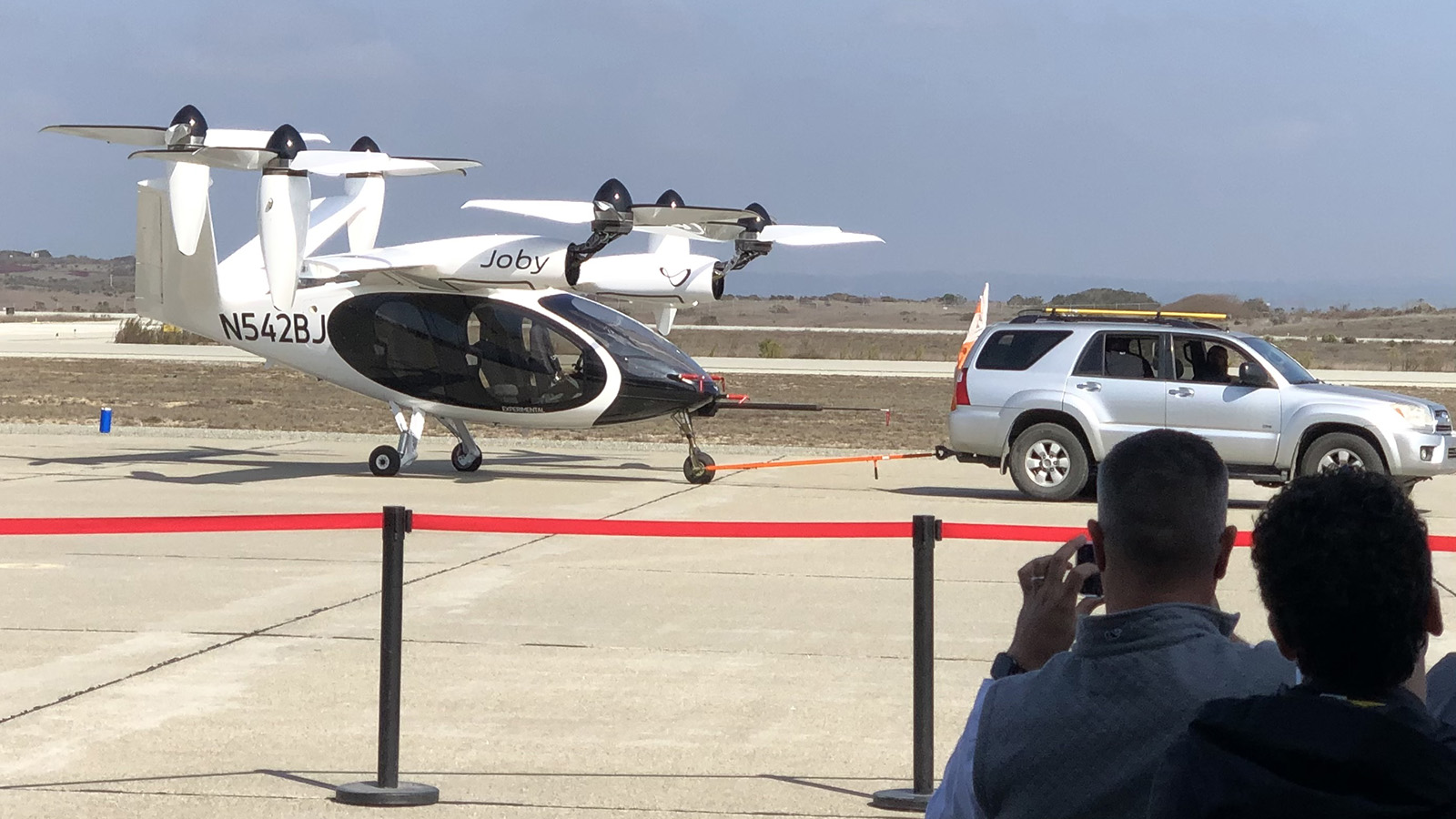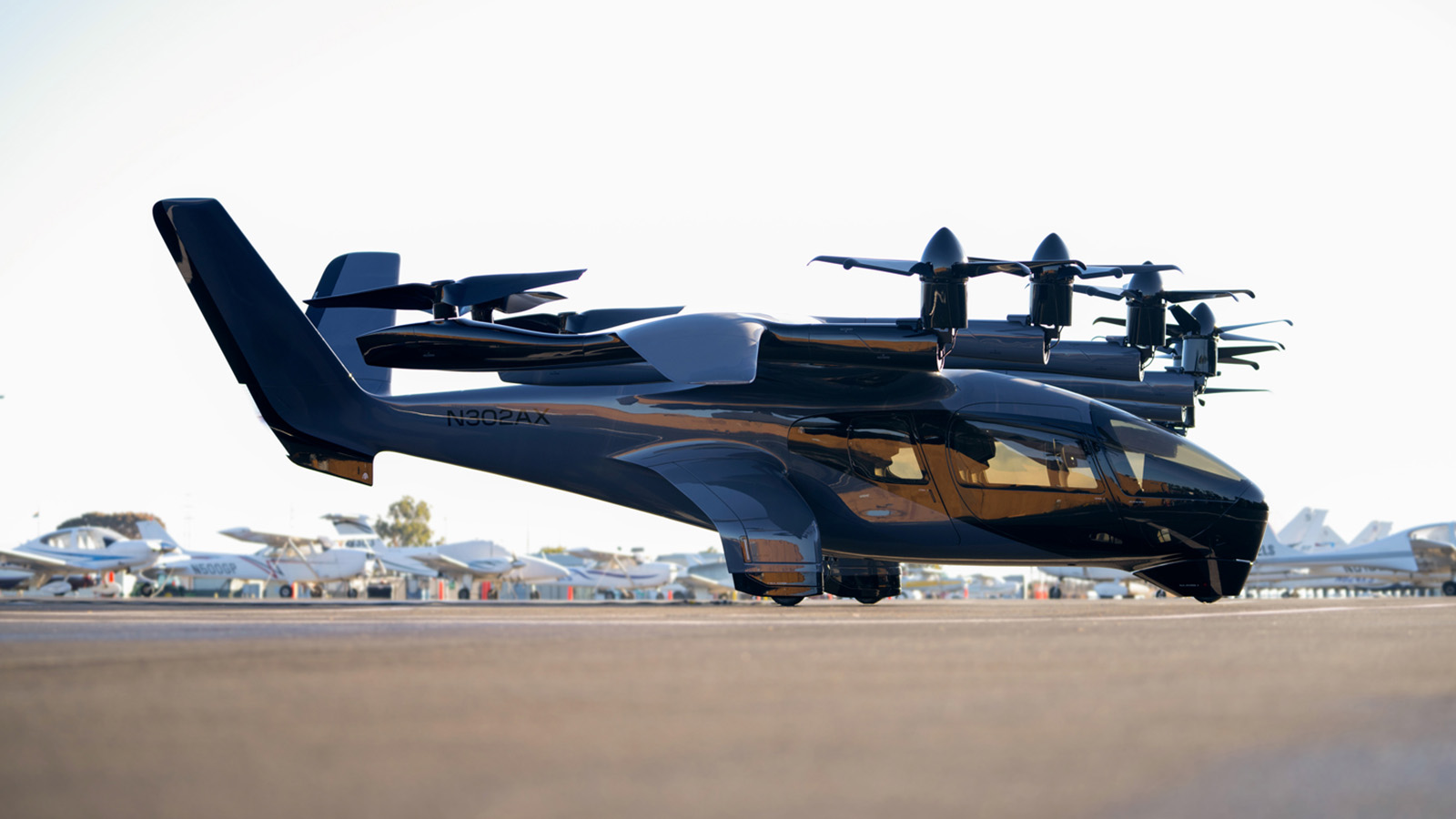Electric air taxi flights in Los Angeles during the 2028 Summer Olympics?
By Paul Brinkmann|April 13, 2023
Here’s who’s applauding FAA’s “Innovate 28” goal and why
To leading air taxi entrepreneurs, it’s not just nice that FAA has set a goal of certifying the safety of electric air taxis in time for them to fly routes in Los Angeles during the 2028 Summer Olympics. It’s a vital part of a strategy for keeping regulators focused.
“Clearly, a lot of pieces have to come together for advanced air mobility to be something that is at a significant scale by 2028,” says Eric Allison, the head of product at Joby Aviation of Silicon Valley, widely regarded as one of the best-positioned air taxi developers. “Many of those pieces, if not most, are in the FAA’s hands, so to have the FAA leading and talking about this is an awesome bit of foresight.”
As one of the busiest cities in the world, Los Angeles is “an awesome place to examine and really to understand deeply what the potential market looks like and what the networks look like, and how this mode of transportation can really be a success in this showcase,” he says.
Joby is focused on obtaining the certifications it needs for aircraft and operations. “We will be demonstrating initial operations and working with the controllers to figure out how they integrate these vehicles into the system, which is one of the most complicated systems in the world,” Allison says.
Rival Archer Aviation, also of Silicon Valley, likewise applauds the FAA goal. “The Olympics are an opportunity to be on the global stage,” says Adam Goldstein, founder and CEO of Archer, which plans to have passenger aircraft in operation by 2025. “Let’s move all the people at the Olympics, all the dignitaries, all the world leaders, on eVTOLs,” referring to electric vertical takeoff and landing aircraft.
Goldstein envisions widespread air taxi service in key markets including Los Angeles, a sprawling metropolis known for heavy traffic. He isn’t sure how many aircraft could be operating by then, but he predicted it won’t be “just five,” but more like hundreds.
“Widespread service by 2028 is a good way to prompt preparation now for the infrastructure needed: vertiports, charging stations, et cetera and make sure we have everything figured out,” he says. “It’s an opportunity to show the world what America can do, and it’s a really important Archer goal.”
FAA Acting Administrator Billy Nolen announced the Olympic goal, which is part of the agency’s broader Innovate 28 initiative to jumpstart air taxi flights in the U.S., in November at the Aero Club in Washington, D.C., reportedly telling an audience that “air taxis will be in high demand” for the 2028 games and “Our job at the FAA is to make that possible.”
Not everyone developing an eVTOL is as optimistic about the 2028 goal, though.
Matt Chasen, founder and CEO of Lift Aircraft, a Texas company that plans to carry single passengers on short tourist jaunts, says by email that lots of challenges lie ahead for those who plan to carry four to six passengers on regular routes. He noted that some of these eVTOL companies have set aggressive schedules to fly at the 2024 Paris Olympics, but he doubts that will happen.
In his view, battery technology just isn’t good enough yet to provide safety margins that FAA will require for passenger service.
“Ultimately it doesn’t matter how supportive regulators are, they are only going to certify when the aircraft are proven safe to the extremely high levels required for commercial passenger use,” he says.
Related Topics
Advanced air mobilityGet the latest news about advanced air mobility delivered to your inbox every two weeks.







